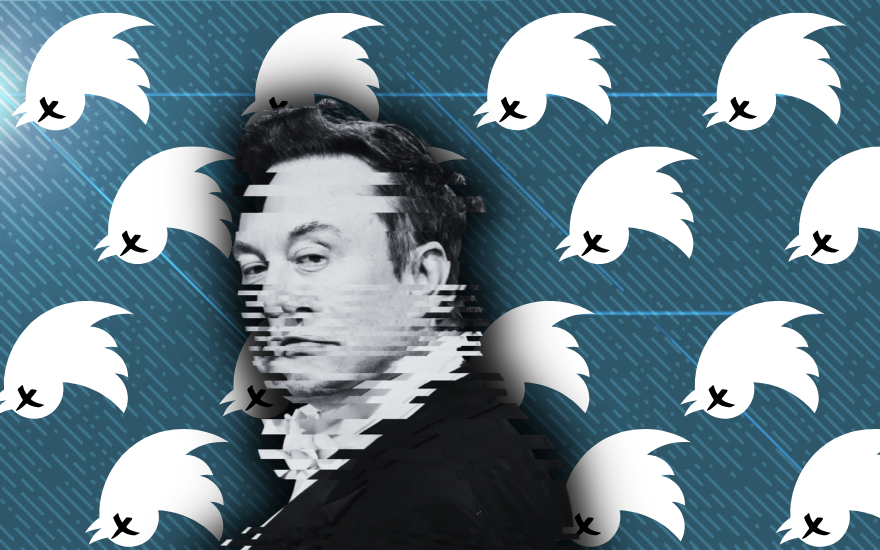Elon Musk’s X Corp., which operates Twitter, is investigating whether the claims of a nonprofit organization could result in a lawsuit.
The Center for Countering Digital Hate, which describes itself as a nonprofit working “to stop the spread of online hate and disinformation,” has published a numbers of reports focusing on Twitter posts the organization deems toxic.
“New research shows that Twitter fails to act on 99% of hate posted by Twitter Blue subscribers, suggesting that the platform is allowing them to break its rules with impunity and is even algorithmically boosting their toxic tweets,” CCDH wrote in a June 1 report.
The central claim resulted from the fact that CCDH researchers reported 100 tweets for hateful conduct, and after four days only one of the tweets had been removed.
“Twitter failed to act on tweets containing racist, homophobic, neo-Nazi, antisemitic or conspiracy content posted in the last month,” the nonprofit concluded. “The research not only raises concerns that Twitter Blue users can get away with tweeting hateful content, but that they also benefit from algorithmic amplification as a result of their paid subscriptions.”
X Corp., however, claims CCDH’s research is bogus.
“CCDH regularly posts articles making inflammatory, outrageous, and false or misleading assertions about Twitter and its operations, which CCDH holds out to the general public as supported by ‘research,’” Alex Spiro, who represents X Corp., wrote to the nonprofit in a July 20 letter.
“CCDH fixes this label on its outlandish conclusions about Twitter despite failing to conduct (or even attempt) anything resembling the rigorous design process, analytical procedures, or peer review that a reasonable person would expect to accompany research product published by any reputable organization,” he continued.
X Corp. argued that the 100 tweets selected by CCDH to be flagged do not represent an appropriate sample of “nearly 500 million tweets sent per day.”
Furthermore, Spiro writes the corporation has “reason to believe” that CCDH’s operators are funded by X Corp.’s commercial competitors, as well as government entities and their affiliates.
The letter concludes by suggesting the nonprofit’s claims “are actionable under Section 43(a) of the Lantham Act” — a portion of federal law involving misleading or deceptive advertising.
In a July 31 letter, council for CCDH called X Corp.’s letter “ridiculous” and countered that the allegations “not only have no basis in fact … but they represent a disturbing effort to intimidate those who have the courage to advocate against incitement, hate speech and harmful content online.”
Roberta A. Kaplan, who represents CCDH, accused X Corp. and Musk of “‘shoot[ing] the messenger’ by attempting to intimidate CCDH and Mr. [Imran] Ahmed,” the nonprofit’s CEO.
“To criticize CCDH for being too limited in its research while simultaneously taking steps to close the platform off to independent research and analysis is the very height of hypocrisy,” the letter states.
CCDH warned X Corp. of the “risks involved in bringing frivolous claims to intimidate thoughtful critics” and demanded that the corporation “take immediate steps to preserve all documents … concerning disinformation and hate speech on Twitter’s platform.”
The letter added: “CCDH will not be bullied by your clients.”
Musk is throwing a tantrum and having his lawyers threaten us with legal action for exposing hate & lies on Twitter.
Billionaires can’t bully independent researchers.
Read more in @RawStory 👇 https://t.co/KXwA50XMP4
— Center for Countering Digital Hate (@CCDHate) July 31, 2023
The London-based CCDH, founded by Ahmed on Oct. 19, 2018, has successfully advocated for prominent figures to be deplatformed in the past.
In 2020, Ahmed and British TV personality Rachel Riley secretly met with Twitter employees to discuss deplatforming columnist Katie Hopkins. After a temporary suspension in January, Hopkins, who had about one million followers, was permanently banned in June.
“Keeping Twitter safe is a top priority for us – abuse and hateful conduct have no place on our service and we will continue to take action when our rules are broken,” Twitter stated at the time, per BBC.
CCDH also played a critical role in author and broadcaster David Icke’s suspension from YouTube and Facebook.
After a 2020 campaign sought to deplatform Icke amid allegations of antisemitism, the English author’s YouTube and Facebook accounts were deleted.
“YouTube has clear policies prohibiting any content that disputes the existence and transmission of Covid-19 as described by the WHO and the NHS,” a spokeswoman told the BBC at the time.
The same year, Google banned the financial blog Zero Hedge from its ad platform after reviewing a CCDH report alleging that comments on articles on the site regarding Black Lives Matter contained racist content. The Federalist received a warning from Google after CCDH raised similar concerns.
According to InfluenceWatch, a project conceived by the think tank Capital Research Center, CCDH “has ties to the left-wing British Labour Party and British left-progressivism.”
The site added:
Imran Ahmed [is] a former Labour political advisor who wrote a book attacking the legacy of free-market thinker and Nobel-laureate economist Friedrich Hayek. … Ahmed previously advised then-Labour MP Hilary Benn and Angela Eagle, a Labour Party politician serving as an MP as of June 2020. Board members with ties to the Labour Party include Kristy McNeill, at one-time an advisor to former British Prime Minister and Labour Party leader Gordon Brown. Morgan McSweeney resigned from the CCDH board to become chief of staff for Labour Party leader Keir Starmer.

